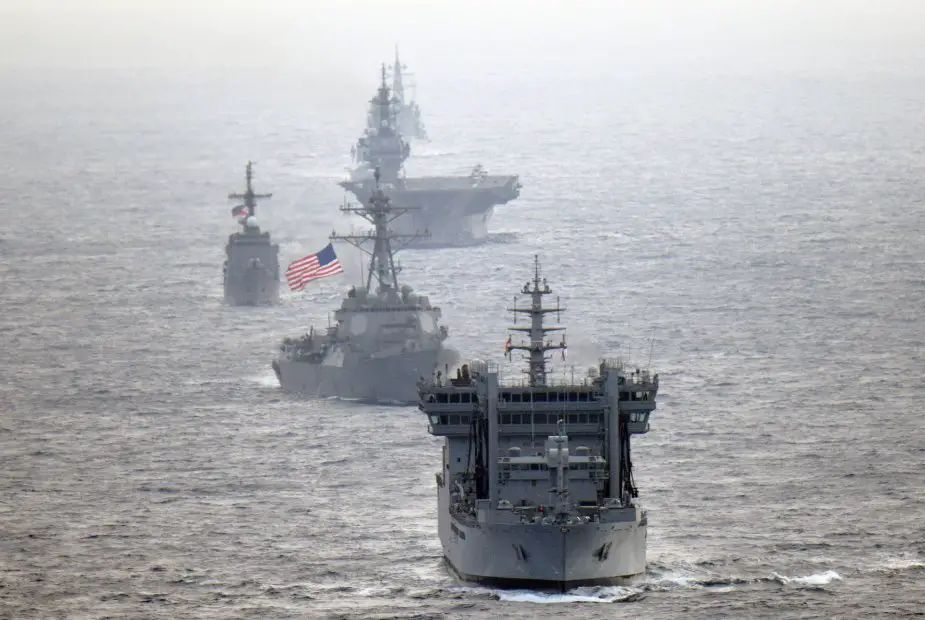Breaking news
US and allied navies sailed together in the South China Sea.
A U.S. Navy guided-missile destroyer joined ships from the Indian Navy, Japan Maritime Self-Defense Force, and the Republic of Philippine Navy sailed through the South China Sea, from May 02 to May 08.

Transiting through international waters were USS William P. Lawrence (DDG 110), Indian Navy destroyer INS Kolkata (D 63) and tanker INS Shakti (A 57), JMSDF helicopter-carrier JS Izumo (DDH 183) and destroyer JS Murasame (DD 101), and Philippine Navy patrol ship BRP Andres Bonifacio (PS 17).
“Our team was really excited to take part in this multi-lateral event,” said Cmdr. Andrew J. Klug, commanding officer, USS William P. Lawrence. “Professional engagements with our allies, partners and friends in the region are opportunities to build upon our existing, strong relationships, as well as learn from each other.”
The ships conducted formation exercises, communication drills, passenger transfers and held a leadership exchange aboard JS Izumo.
“The opportunity of a multi-sail with U.S. Navy and regional partners was a great experience. In addition to building mutual understanding and trust, it also served as a way to enhance peace and stability in the Indo-Pacific region,” said Rear Adm. Hiroshi Egawa, commander, Escort Flotilla 1. “The ability to do various exercises among four different navies smoothly demonstrated professionalism and high operational skills."
Events like this provide opportunities for like-minded navies to train together and promote maritime cooperation throughout a free and open Indo-Pacific.
“Our bond of friendship with our regional partners is as strong as our commitment to maintaining peace and stability in the region,” said Capt. Jerry Y. Garrido Jr., commanding officer, BRP Andres Bonifacio.
U.S. 7th Fleet provides security alongside allies and partners throughout a free and open Indo-Pacific. As the U.S. Navy's largest forward-deployed fleet, 7th Fleet operates roughly 50-70 ships and submarines and 140 aircraft with approximately 20,000 Sailors.


























